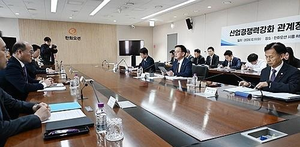
South Korean authorities are considering strategies to support the local economy amid ongoing political instability and potential economic challenges from the incoming US administration. On January 3, Acting President and Minister of Economy and Finance Choi Sang-mok emphasized the need to safeguard the country’s export performance and address uncertainties faced by local businesses.
“The South Korean economy, grappling with sluggish domestic consumption, is confronting unprecedented uncertainties,” Choi remarked during a meeting with business representatives. He noted that the government is preparing systematic response strategies to manage trade uncertainties, particularly in light of the incoming US administration’s potentially punitive trade policies.
As part of these efforts, Choi announced plans to support key industries like artificial intelligence and bio-health through research and development initiatives, while also working to remove unnecessary regulations to foster new economic growth areas. Additionally, the acting president vowed to provide substantial support to small and medium-sized enterprises (SMEs), including enhanced tax benefits. This support package includes temporary investment tax credits for SMEs, a higher income tax deduction for credit card usage, and the promotion of government-issued gift certificates to stimulate domestic spending.
In response to the uncertain economic outlook, Bank of Korea Governor Rhee Chang-yong underlined the importance of flexible monetary policy. Rhee stated that the central bank would closely monitor domestic and international risks, adjusting the pace of interest rate cuts based on incoming economic data.
Amid these efforts, the South Korean finance ministry revised its growth forecast for the year to 1.8%, down from the earlier projection of 2.2% and slower than the previous year’s estimated 2.1% growth. To support economic stability, 26 major public institutions are set to invest 66 trillion won (approximately 45 billion USD) this year. This includes measures to stabilize the housing market by increasing housing supply and investing in infrastructure projects in energy, transportation, and logistics.
Recent Random Post:
















